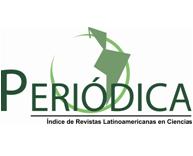ENVIRONMENTAL RISK DUE TO DISCHARGE OF WASTEWATER FROM A HOSPITAL INTO AN URBAN RIVER IN CUBA
Keywords:
bacteria, bacterial resistance to antibiotics, horizontal gene transferAbstract
Introduction:
The discharge of hospital wastewater leads to the establishment of microorganisms from human biota in aquatic ecosystems. This is risky, as there is the possibility of horizontal gene transfer of antibiotic resistance genes from bacteria to other bacterial strains in the aquatic ecosystem and the environment in general, contributing to the expansion of bacterial resistance to antibiotics and the therapeutic ineffectiveness of these medicines.
Objective:
To demonstrate the environmental risk due to discharge of wastewater from a hospital into an urban river in Santa Clara, Cuba.
Materials and Methods:
Bacteria were isolated from sediment and soil from the banks of the Bélico river and their resistance to parenteral antibiotics for intra-hospital use employed between 2015 and 2019 was determined. If positive, the environmental risk of these medicines in terrestrial surface waters was estimated, and the resistance of in-hospital strains was assessed.
Results and Discussion:
All isolated bacterial strains were resistant to at least one of the parenteral antibiotics for intra-hospital use employed in the period under study. All antibiotics were environmentally risky in terrestrial surface waters. There was a high antibiotic resistance of the strains isolated from hospitalized patients.
Conclusions:
The discharge of untreated wastewater into the Bélico river led to the establishment of bacterial strains which can have a negative impact on the environment, including human health.
Downloads
Downloads
Published
How to Cite
Issue
Section
License

This work is licensed under a Creative Commons Attribution-NonCommercial 4.0 International License.




















